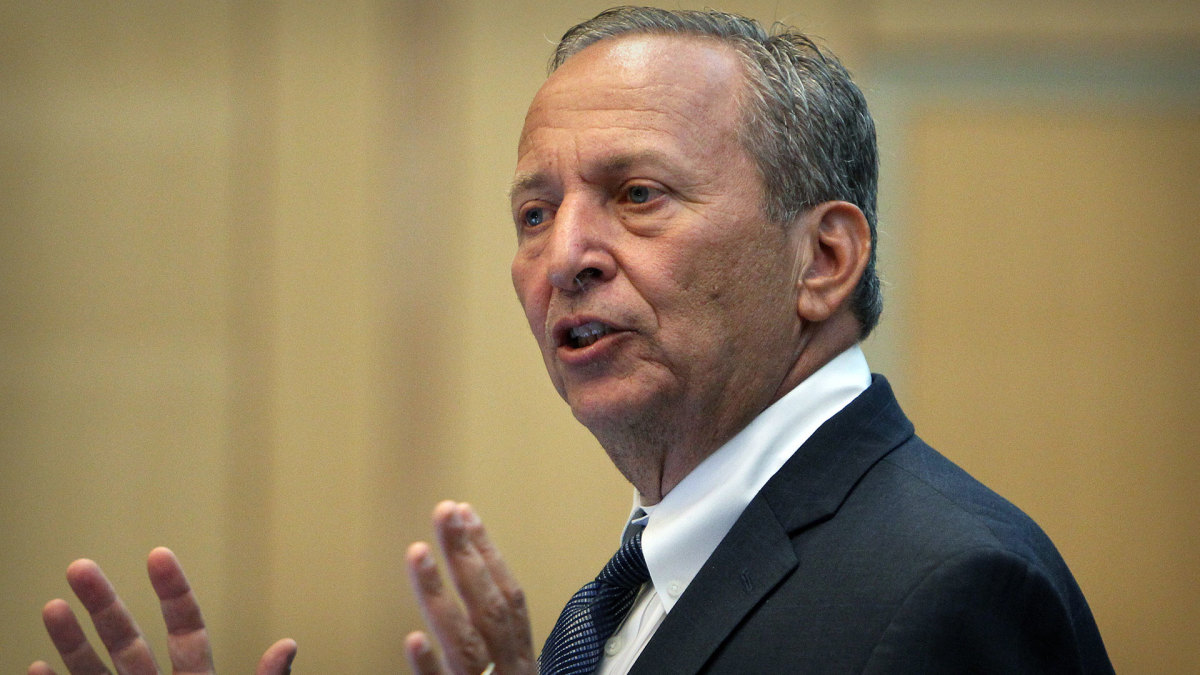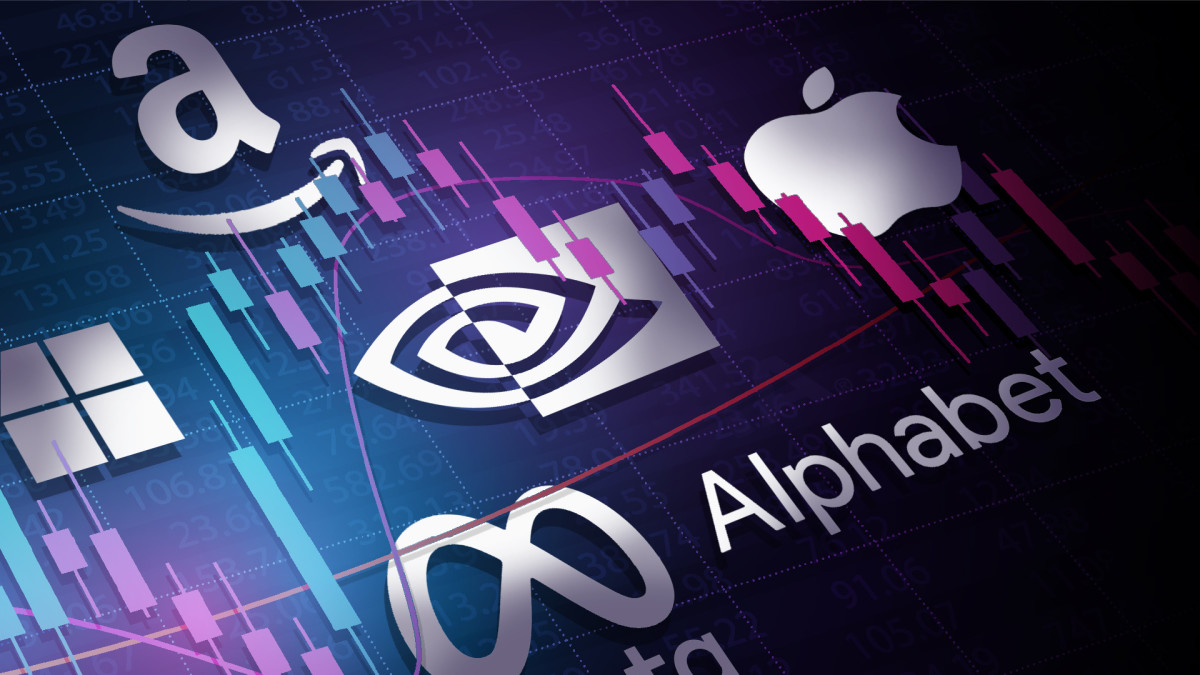When she was confirmed by the Senate in a close 2022 vote to fill an unexpired term, Fed governor Lisa Cook became the first Black woman to have a seat at the table of the U.S. central bank since it was founded in 1913.
Several months later, in 2023, lawmakers made Cook’s spot more permanent by confirming her to serve a full 14-year term after President Joe Biden re-nominated her.
That new term turns Cook into a leader of the progressive movement in financial markets, and focuses attention on areas her research has highlighted, including income inequality, poverty and other economic concerns of working-class Americans that often struggle to get attention at the central bank. A former economics professor at Michigan State University, Cook had roles in the Obama, Bush and Clinton administrations, but her current role will be her most impactful yet.
Cook is one of 13 policy makers on The MarketWatch 50 list of the most influential people in markets. From regulators to central bankers and cabinet members, these are the government officials who CEOs, traders and investors are watching the most closely. Their actions can impact the prices of stocks, bonds, currencies, commodities — and even crypto.
Starting his five-year term at the helm at the Bank of Japan in April 2023, Kazuo Ueda faces the tough task of unwinding Japan’s longstanding ultra loose monetary policy, including the controversial yield-curve control program, without unleashing chaos in Japanese and global financial markets. Investors around the world are touchy about the prospect of the world losing its last anchor to ultralow interest rates. They were taken by surprise in September 2023 when Ueda said the Bank of Japan could have enough data by the end of the year to determine if Japan’s central bank can end negative rates. Such a move would mark the end of an era both for Japan and global financial markets.
Fed chair Jerome Powell, European Central Bank President Christine Lagarde and Hafize Gaye Erkan, governor of the Central Bank of the Republic of Turkey, are the other central bankers on this year’s MarketWatch list.
The U.S. Secretary of Commerce is not usually an official market participants dwell on much. But Gina Raimondo has changed that. Antagonism toward China is one of the few issues in Washington that can win bipartisan support. This dynamic has led to a spate of legislation and regulatory efforts that raised Raimondo’s profile.Her department has been charged with the implementation of the CHIPS and Science Act of 2022, which allocated nearly $300 billion in spending to fund domestic research and manufacturing of semiconductors around the country.. Construction spending in the U.S. has doubled over the past year, reaching an annual rate of $190 billion, driven by investments in high-end manufacturing facilities by companies like Intel
INTC,
TSMC
2330,
and Micron
MU,
Raimondo is also overseeing a $50 billion program to build out broadband throughout America. In addition, she is charged with monitoring China trade policy amid bipartisan calls for more extensive tariffs and new restrictions on outbound investment to China. In October 2023, Raimondo announced that the U.S. would limit the export of artificial-intelligence chips to China. That soured investors a bit on the financial prospects for Nvidia, the leading AI chip maker.
Gary Gensler, chair of the Securities and Exchange Commission, escalated his regulatory agency’s crackdown on bitcoin
BTCUSD,
and the cryptocurrency industry in 2023 by launching lawsuits against Binance and Coinbase
COIN,
the two largest digital asset exchanges in the world by trading volume. The SEC alleges the two companies are operating unregistered securities exchanges in the U.S. But Binance and Coinbase say they are not violating securities regulation. The agency’s attorneys have also argued that several high profile tokens, including Solana and Cardano, are unregistered securities, putting their issuers at risk of legal trouble as well.
Gensler’s cryptocurrency battle has faced some legal setbacks, like a federal appeals court overturning the SEC’s decision to reject Grayscale Investment’s application to establish a spot bitcoin exchange traded fund. Gensler is simultaneously pushing forward the most fundamental market-structure reform measures in a generation, including a proposal that would force stock brokers to submit retail orders to a new auction process, potentially upending the business models of wholesalers like Citadel Securities and Virtu Financial
VIRT,
Treasury Secretary Janet Yellen; Shalanda Young, director of the White House Office of Management and Budget; and Federal Trade Commission Chair Lina Khan are other U.S. government officials who made the MarketWatch list this year. With the U.S. budget deficit widening, Yellen’s borrowing-plan decisions, in particular, and her willingness to issue longer-term debt amid surging yields as opposed to bills, is of increasing importance across global markets.
To be sure, policy makers don’t always work in government. After criticizing prior union leadership and being elected head of the Teamsters, Sean O’Brien led a 2023 negotiation on behalf of 340,000 workers with UPS
UPS,
the nation’s biggest trucking company. Using social media and tough talk, O’Brien struck a deal with UPS that was widely viewed as a big union victory. UPS drivers will, on average, be earning $170,000 annually in pay and benefits at the end of the five-year deal. The agreement signified a new period of organized labor activity and strength in America. Still, O’Brien also suffered a setback at Yellow, where his negotiation positions were blamed by management for the publicly traded company’s collapse. He now is focused on unionizing more than 1 million workers at Amazon.
Shawn Fain is another union leader on the MarketWatch list. In 2023, Fain initiated the UAW strike at GM
GM,
Ford
F,
and Jeep maker Stellantis
STLA,
with a series of work stoppages and walkouts involving 146,000 hourly workers. A firebrand activist, Fain demanded much higher wages, cost-of-living adjustments and retiree medical benefits, as the companies were making big investments in new technologies. He framed the strike as a battle for blue-collar workers to share in the huge profits being made by corporate America. In October 2023, the UAW reached deals with the three Detroit automakers, but the strike could benefit Tesla
TSLA,
if those deals undermine the Detroit automobile makers’ effort to compete in the electric-vehicles market.
Abdulaziz bin Salman Al Saud, Saudi Arabia’s powerful energy minister, isn’t afraid to stir things up. Openly taunting speculators, he initiated a voluntary oil-production cut of 1 million barrels a day in the summer of 2023 that was seen as a primary driver of the rebound in the price of crude oil and U.S. gasoline. Brent crude prices reached $90 a barrel in September 2023 before falling down to a recent $80. He touted a close working relationship with Russia in the face of international condemnation of Moscow for its invasion of Ukraine, as part of a “whatever necessary” approach to supporting oil prices. At the same time, he’s castigated the financial media and reportedly taken an increasingly autocratic approach to Saudi Arabia’s role as the de facto leader of OPEC. With the Middle East embroiled in conflict yet again, his actions will be watched even more closely.
Source link



